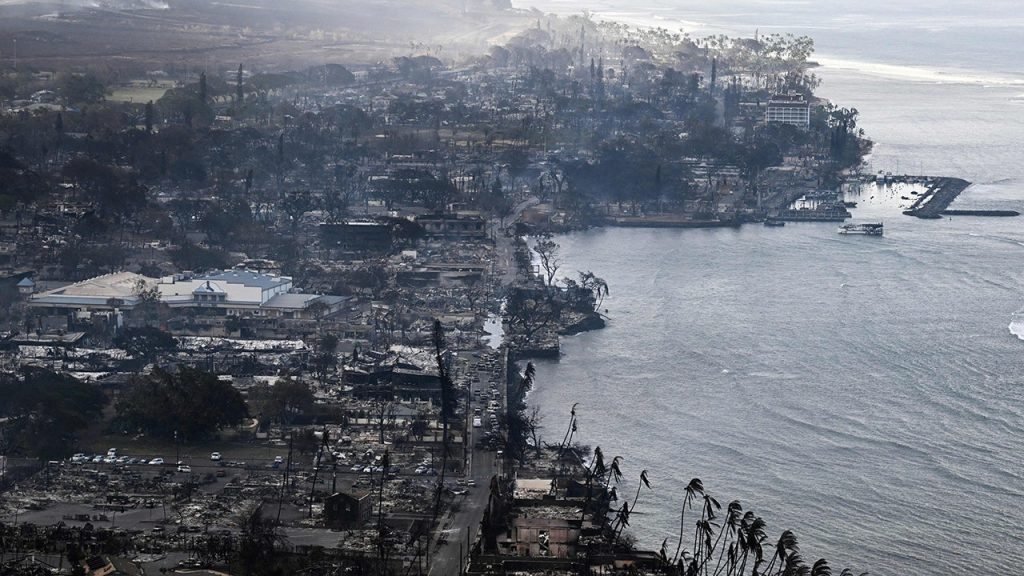Hawaii authorities have announced that coastal waters off the wildfire-stricken town of Lahaina are safe for surfing and swimming, following a review of water sampling test results by various organizations, including the University of Hawaii researchers, the Surfrider Foundation, and the state Department of Land and Natural Resources. Despite this clearance, access to some coastal areas is still limited as cleanup efforts continue. Local officials have advised residents and visitors to limit their exposure to these waters since the deadly fire, although the safety of consuming fish from Lahaina’s waters has not been addressed. Before the fire, Lahaina’s waters were popular with surfers, swimmers, and snorkelers, but tour companies have since started taking visitors to nearby reefs to the north or south instead.
The Department of Health was particularly concerned with measuring metals in the water, as their concentrations can be elevated in wildfire ash and potentially be washed into the ocean through rain and runoff. The University of Hawaii conducted measurements of nutrients, metals, and carbonate chemistry, while the Surfrider Foundation tested for metals and polyaromatic hydrocarbons, a class of chemicals found in coal, crude oil, and gasoline. Sediment samples from the harbor were also analyzed for various contaminants, including metals, dioxins, and total petroleum hydrocarbons. Scientists are using this unique opportunity presented by the Maui wildfire to study the potential impact of chemicals and metals from burned materials like plastics and batteries on delicate reef ecosystems, as this situation is unprecedented in the environmental research community.
The Maui wildfire, which occurred on August 8th, has resulted in ongoing cleanup efforts in Lahaina and its surrounding areas. The state Department of Health’s announcement about the safety of coastal waters was made after a thorough review of water quality testing data collected by different organizations involved in monitoring environmental conditions in the region. While recreational activity is now permitted in most areas, some parts of the coast remain restricted due to ongoing cleanup operations. Prior to the fire, tour companies frequently took visitors to snorkel at coral reefs off the town of Lahaina, but now these tours have been redirected to other locations nearby to ensure the safety of tourists and residents.
The announcement from the state Department of Health did not address the safety of consuming fish and other marine species from Lahaina’s waters. In addition to advising caution about water activities, officials have previously recommended avoiding eating fish caught in the area following the wildfire. This precaution suggests that there may still be concerns about the potential contamination of marine life due to the fire and its aftermath. The focus on testing for metals in the water is significant because of the possible impact of these substances on marine ecosystems and human health, highlighting the importance of ongoing monitoring and research in the wake of environmental disasters like the Maui wildfire.
The situation in Lahaina is particularly unique because there has not been a similar instance of a large urban fire occurring adjacent to a coral reef anywhere else in the world. Scientists are paying close attention to how chemicals and metals from burned materials like plastics, lead paint, and lithium-ion batteries might affect the fragile reef ecosystems in the area. By using this case as a learning opportunity, researchers hope to gain valuable insights into the potential long-term effects of wildfires on coastal environments and marine life, ultimately improving our understanding of the interconnectedness of human activities and natural ecosystems in the face of environmental challenges like wildfires. Through continued monitoring and research efforts, authorities can better assess the risks and take appropriate actions to protect the health and safety of residents and visitors in the aftermath of such natural disasters.


